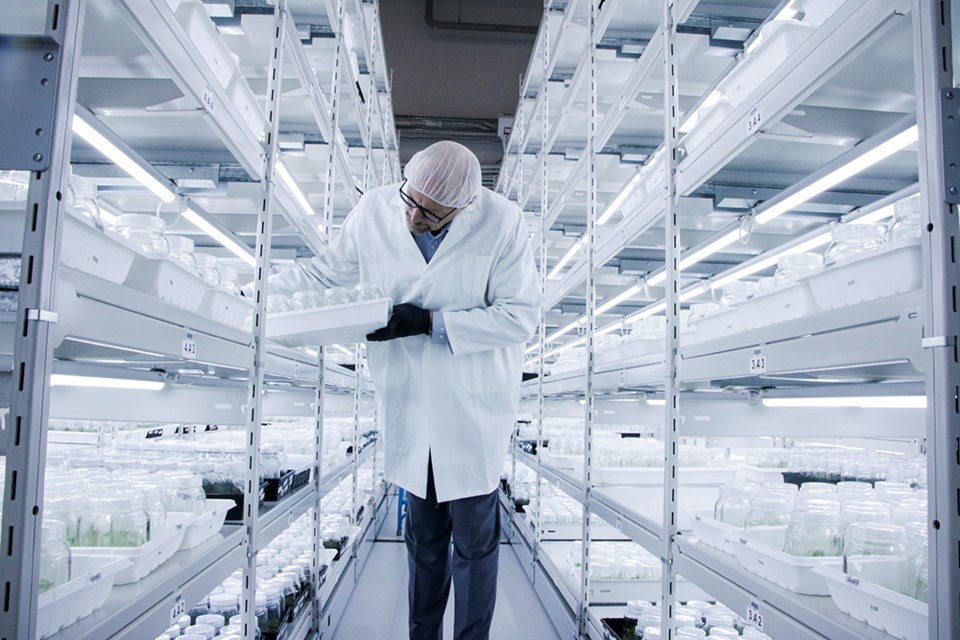This ain’t your average grow op.
Drive up to Segra International’s new facility in New Westminster and you’d likely never guess it had anything to do with cannabis, save, maybe, for the high security around the place.
Located in the Braid industrial district, the warehouse is entirely inconspicuous – inside, the company’s executive staff stress that there’s none of the typical “skunky” cannabis smell, and they’re right. That’s because this isn’t any ordinary grow room.
Instead, Segra’s brand new facility is a dedicated nursery – one of the first, if not the first, in Canada. That means the facility only deals with baby plants, which haven’t flowered yet. According to Kevin Mehr, the flower not only gives the high, but it also emits most of the smell.
Mehr, the vice-president of Canada business development for Segra, said the lack of a smell from the facility is also because the plants are sealed in jars.
Tiny green tangles of baby cannabis plants fill rows upon rows of jars in the Segra storage area, part of its roughly 3,000 square feet of production space. But while the space may be relatively small – a bit bigger than your average single-family house – the company expects to push plenty of product.
Mehr estimates Segra will be at full capacity by the end of 2020, at which point the company will be able to put out roughly 1.5 million of those small green plants out to growers per year.
Segra works in tissue culture – meaning it grows the plants in a gel made in house to replace soil – which Mehr said offers some advantages to the company when it comes to mass-producing plants. For one, the sterile nature of the work reduces the risk of diseases affecting the crop.
While tissue culture is relatively new to the cannabis business, Mehr said that’s an anomaly in agriculture – just about every other commercial crop, from berries to grains, start with tissue culture.
“Most people don’t realize that every strawberry or blueberry they’ve had in the last 10 or 20 years was actually produced this way. More ornamental plants, like ferns, orchids, are all produced this way,” Mehr said.
But Segra isn’t at a point where they’re sending their product out just yet – Mehr said he expects the company to be sending out their first orders in February.
Although Segra’s been incorporated for around three years, Mehr said the company only recently got its licence from Health Canada to operate its facility in New West, and it only began production work about in the last couple of weeks.
Prior to that, Segra had been operating out of Langley with a lab in Richmond and working with other licensed producers until they could get their own licence.
Now that they’ve got a licence to grow, Mehr said the company chose New West because of its “surprisingly progressive” zoning laws around cannabis facilities. Whereas just about every other municipality in Canada requires zoning amendments to open cannabis production facilities in industrial areas, New West incorporated cannabis production into existing zoning bylaws.
That meant Segra would be able to open in the city’s industrial area without having to go through the lengthy zoning amendment process.
That, Mehr said, offers a benefit back to New West. Currently the facility employs 15 people, but when it’s at full force, Mehr said he expects the facility to employ 40 people.



